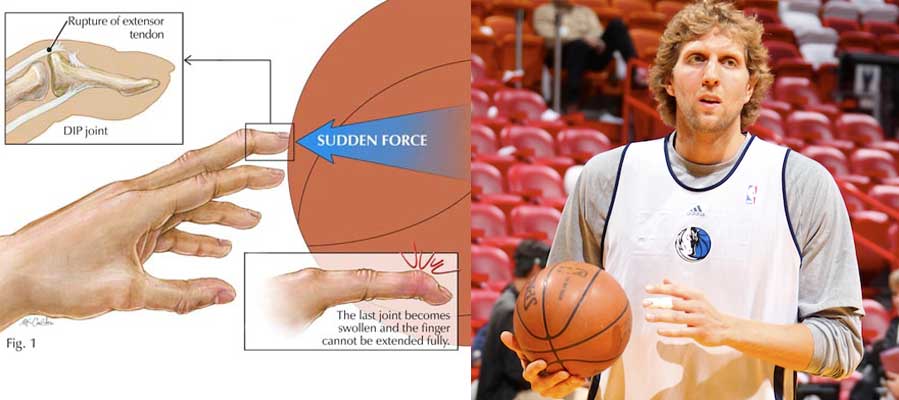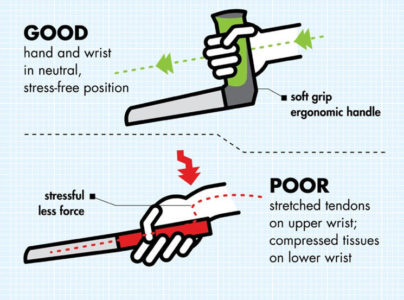Safe Cooking Tips

We have all heard of ergonomics at the workplace, but you can practice safe cooking tips and good ergonomics in your kitchen while cooking to decrease stress on your hands and upper body.
What tools are you using in the kitchen?
Look for kitchen utensils and cookware with comfortable, easy-to-grip handles. This will decrease the stress on your hands, as it will not require as much force to grip and hold objects.
Use oven mitts instead of flat potholders to protect your entire hand.
Use plastic as appropriate to reduce the weight of what your hands and arms have to hold.
Use an electric can opener or an under-the-cabinet mounted Y-shaped can opener. This will free both hands to help with opening the jar or bottle, decreasing the pressure on your thumbs.
Find easy-open canisters for storing common ingredients.
Shop for kitchen tools with oversized handles, such as potato peelers, can openers, rocker knives, scissors, spoons, forks, serving utensils, etc. for tasks you perform often.
Modify how you perform certain tasks
 Use scissors instead of your thumbs to open packages and bags.
Use scissors instead of your thumbs to open packages and bags.
Do not lift heavy pots and pans. Slide pots off burners and onto hot pads along the counter whenever possible. In the oven, always slide the shelf out so you can get both hands safely on the handles or edges. If you have a large, heavy dish, consider making the same meal in smaller sizes in the oven so you can lift safely.
Use a tray to transport dishes from one place to another.
Keep knives separated from dishes while cleaning. Clean them individually and allow them to dry on the countertop.

Be aware of your posture
Posture is important to keep in mind while spending time in the kitchen cooking and preparing food. Try not to let your shoulders round forward, but instead keep your shoulders back. If it is difficult to maintain good posture during a task, consider sitting at a table to perform it whenever possible, or propping a leg on step stool.
BoulderCentre for Orthopedics & Spine can help. Call us (303) 449-2730 and ask to see one of our physical or occupational therapists.
Article courtesy of American Society of Hand Therapists.